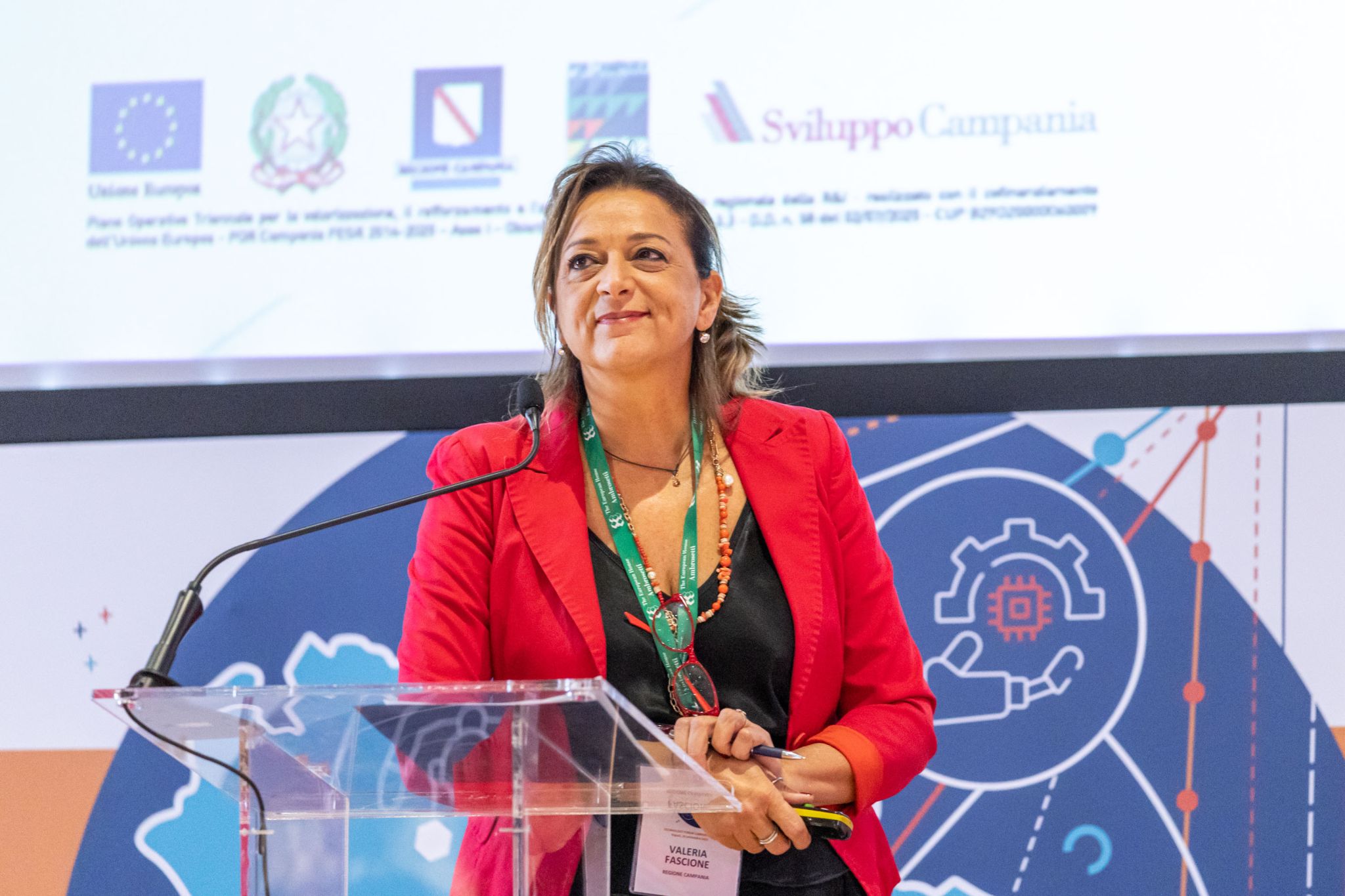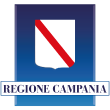On the occasion of the European Year of Skills, the seventh edition of the Technology Forum Campania was held, a platform for discussion and comparison of reference for public and private actors in the regional research and innovation ecosystem, which places Campania as leader among the regions of Southern Italy on innovation and research, thanks to the presence of a rich integrated ecosystem of talents and companies. Campania is the region that grows the most in exports, increasing the component of high-tech products exported (48%) with a prevalence of #Pharmaceuticals and #Aerospace. This is one of the data that emerged during the Technology Forum Campania.
Introducing the Forum, held at the Technological Pole of the Federico II University of Naples in San Giovanni a Teduccio, the Rector of Unina, Matteo Lorito.
The 2023 edition highlighted the important progress that the Campanian ecosystem is making in training and attracting talent, in adopting frontier technologies and in achieving the twin transition for the continuous economic and industrial development of the Region.
A meeting that for Valeria Fascione (disambiguation), Campania Regional Councillor for Research, Innovation and Startup, provides an annual assessment of the ‘state of health’ of the regional research and innovation ecosystem with the aim of making it increasingly open and international, stimulating the competitiveness of the business community and the ability to attract talent, businesses and capital to the region.
The Councillor also recalled the first interventions put in place with the 2021-2027 programming of the European Funds, citing the Campania Startup 2023 call (30 million PR Campania FESR) which received 870 applications for membership and the work in progress to supplement the resources made available to the NRRP for Campania, recalling the complementary intervention of Campania to support the international component of 2000 scholarships for industrial doctorates. An initiative that will allow a real injection of innovation into the business system, which would have been incomplete without international experience on the part of the candidates, called upon to make the business system increasingly competitive. The Councillor then recalled the ongoing initiatives on Agritech and sustainability with the National Center for the Development of New Technologies in Agriculture (another NRRP synergy) the Agritech Academy, the Farming Future national technology transfer hub that is linked to Terranext acceleration program for startups and innovative SMEs on the bioeconomy. The results of the multi-annual regional cancer programme with 4 operational infrastructures: the Centre for Nanophotonics and Optoelectronics for Human Health (CNOS), the Centre for Genomic Research for Health (CRGS), the Campania Imagining Infrastructure for Research in Oncology (CIRO) and the PREMIO (Infrastructure for Precision Medicine in Oncology) to which are added and the other initiatives in the Life Sciences sector with the rare diseases programme and the VITA accelerators (CDP circuit) and BNCT Boron Neutron Capture Therapy) (funded by the NRRP). Together with these, the Councillor wanted to mention the initiatives in the Space economy, with the Iride – Copernicus and Return programmes, which see the Campania champion user collecting and using data collected from space observation and the development of minilabs to test products in zero gravity, to conclude with the initiatives in the Quantum and cybersecurity sectors.
Here the presentation of Valeria Fascione
This work began a long time ago, in 2015, the year in which the De Luca junta was first established, and Valeria Fascione has always been involved in innovation. A vision and a policy that, year after year, has built, with patience and self-sacrifice, an ecosystem that today is confronted with the world and is able to have its say with respectable numbers. Some of the results can be found in the words of Valerio De Molli – managing partner & CEO, The European House – Ambrosetti, who, in his introductory report entitled ‘Photography of Italy in the European Year of Skills’, clearly identified Campania as one of the regions with a favourable positioning to reap the most benefits from the ongoing transitions.
Here is the presentation of Valerio De Molli
During the day (HERE THE FULL PROGRAM) the various themes were analysed through a series of thematic panels that hosted speakers of international importance. One of the topics discussed was skill mismatch, i.e. the difficulty of matching the demand for and supply of skills on the labour market, specifically in Campania.
Vito Grassi, President of the Council of Regional Representations and Vice-President of Confindustria and CEO of Graded and President of Unioncamere Andrea Prete They made the point. Mr Grassi stressed that small businesses are not digitally ready and Mr Prete recalled the action of the Italian Chambers of Commerce which, with the PIDs (Digital Business Points), have intervened in over 500 000 businesses, including small and very small ones, to help them in the digital transition.
Another aspect is that of the need for the Public Administration to equip itself with advanced digital skills, especially in the field of cybersecurity, but of the possible lack of appeal that the PA can have for young people with high skills. He spoke on the subject Massimo Bisogno – Director of the Special Office for Growth and Digital Transition of the Campania Region.
Appeal instead that Campania exercises on the company Leonardo that through, Gennaro Faella – Senior Vice President Innovation & Development at Leonardo Cyber & Security Solutions, is in line with the Region’s vision of the current challenges.
Giorgio Ventre, Scientific Director Apple Developer Academy, University of Naples Federico II and Sylvain Bellenger, director of the Museum and Real Bosco di Capodimonte, talked about the interactions between digital and culture to create the skills of the future.
One of the innovation challenges facing the Campania Region is the Quantum Challenge. He spoke on the subject, among others, Giovanni Acampora, Professor of Computer Science and Director of Quantum Computing and Smart Systems Lab (QUASAR), University of Naples Federico II.
The Technology Forum Campania also gave the floor to the talents who were trained in the Campania academies system, with the story of some training and work experiences provided by some former students.
The day opened with the presentation of some previews of the Position Paper, which will be presented in December 2023 at a dedicated press conference, containing a snapshot of the Campania research and innovation ecosystem in the national and European framework and the related actions and policies necessary to promote talent attraction and retention, with insights into Life Sciences and the Space Economy.
The academic ecosystem
The Campania Region is the third university pole of the country for the incidence of enrolled students on the population, forming 193.6 thousand students (10.6% of the Italian total). The attractiveness and competitiveness of the regional research and innovation ecosystem is particularly supported by the opening of new state-of-the-art degree programmes and the Campania Academy model, which has become a national and international benchmark. To date, in fact, the Academy of some of the world's most important players in high-innovation sectors are based in the area.
The research ecosystem
With reference to research, Campania ranks 1st in the South and 7th at national level for investments in Research and Development with a value of 1.4 million Euro (+7.7 million Euros).% between 2016 and 2020), and 1a in the Mezzogiorno by share of R&D investment in GDP of 1.3% (in constant growth compared to 2016, when the share was 1.2%). However, Campania is still below the Italian average (1.5%). The region is also 1a in the South by number of researchers in 2020 (14.9 thousand, equal to 7% of the national total), recording the 3a Italy’s highest growth in this indicator (+21% between 2016 and 2020).
The innovation ecosystem
In the field of innovation, the rich regional ecosystem has enabled Campania to position itself 1a in the South by number of patents filed (with a total of 2,782 between 2010 and 2020), 3a in Italy by number of innovative startups, with a total of 1,465 (10.6% of the national total) and by number of certified incubators – currently 8 covering all provinces – and 1a by growth rate of innovative startups between 2020 and 2022 (+52.2%).
Manufacturing and high-tech
Campania represents the industrial locomotive of Southern Italy, producing 33.8% Added Value of Southern Manufacturing. In this context, high-tech sectors represent a key part of regional manufacturing production. Looking at the composition of exports, high-tech accounts for 45.8 % of total exports.% of the total in 2022. Campania is also positioned 2a in Italy for growth in high-tech exports between 2018 and 2022, recording an increase of 66.5% (vs. 28,6% national media).
Life Sciences
With reference to Life Sciences, Campania has shown a strong dynamism in recent years, recording growth rates in the pharmaceutical sector significantly higher than the national average: between 2018 and 2022, employees in the Pharma sector in Campania more than doubled (+112.1%), against a national growth of 3.2%. This trend is also reflected in exports, which grew by 198.2 in the five-year period.%, 114.6 p.p. higher than the national average. At the same time, the biotechnology sector is also experiencing a development phase in Campania. The companies active in this sector in Campania have grown by 90.2% between 2015 and 2022 (vs. +21.8% national average), reaching the 40th% of the total of all the regions of the Mezzogiorno.
Space Economy
As part of the Space Economy, the Campania Region has been chosen as the Champion User of one of the most relevant programmes at European level for earth observation activities: the IRIDE programme. IRIDE represents the Italian constellation, in low orbit, for the timely and continuous monitoring of our territory. The choice of Campania as Champion User is based on some characteristics that make the Region an ideal place for experimentation in Space Economy programs: in addition to the strong industrial vocation of the area, the presence of young and qualified human capital and a rich research and innovation ecosystem, Campania boasts a developed aerospace district, comprising 308 companies (8% of companies active on the national territory) and generates 1.76 billion Euro exports (equal to 14% total regional exports), as well as the presence of small and medium-sized enterprises and highly specialised consortia with a strong positioning in the upstream and downstream sectors.
The new Regional Planning and the NRRP
In recent years, the Campania Region – in synergy with other public and private actors – has placed great emphasis on strengthening the innovation and research ecosystem in the most promising manufacturing sectors in terms of capacity for growth and internationalisation, but also on the creation of technological infrastructures across the various sectors of the economy, placing itself at the forefront of the development of projects of national and international importance. In particular, as part of the system initiatives financed with NRRP funds (M4C2), the Region was awarded 2 of the 14 national hubs of the extended partnerships, 1 of the 5 National Research Centres for Agricultural Technologies (Agritech), 5 of the 33 research infrastructures and 3 of the 24 technological innovation infrastructures.




